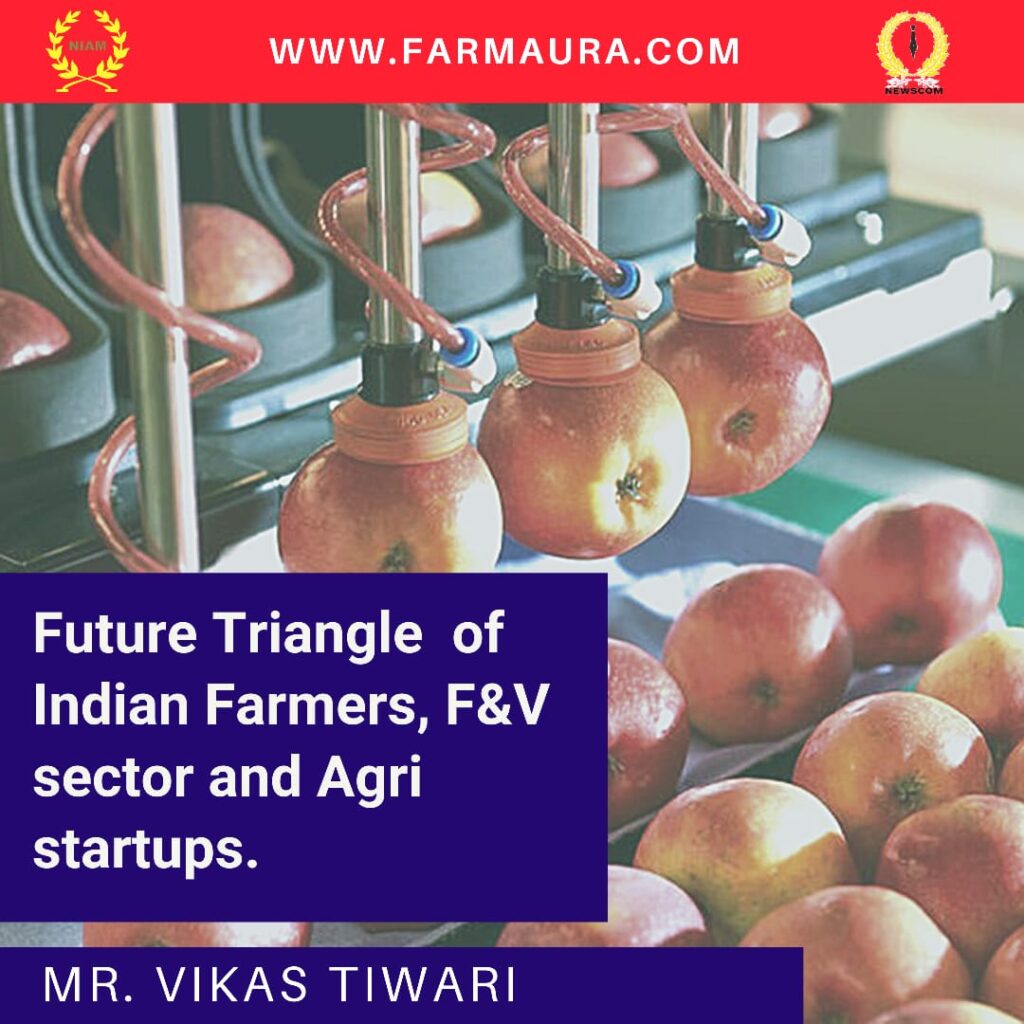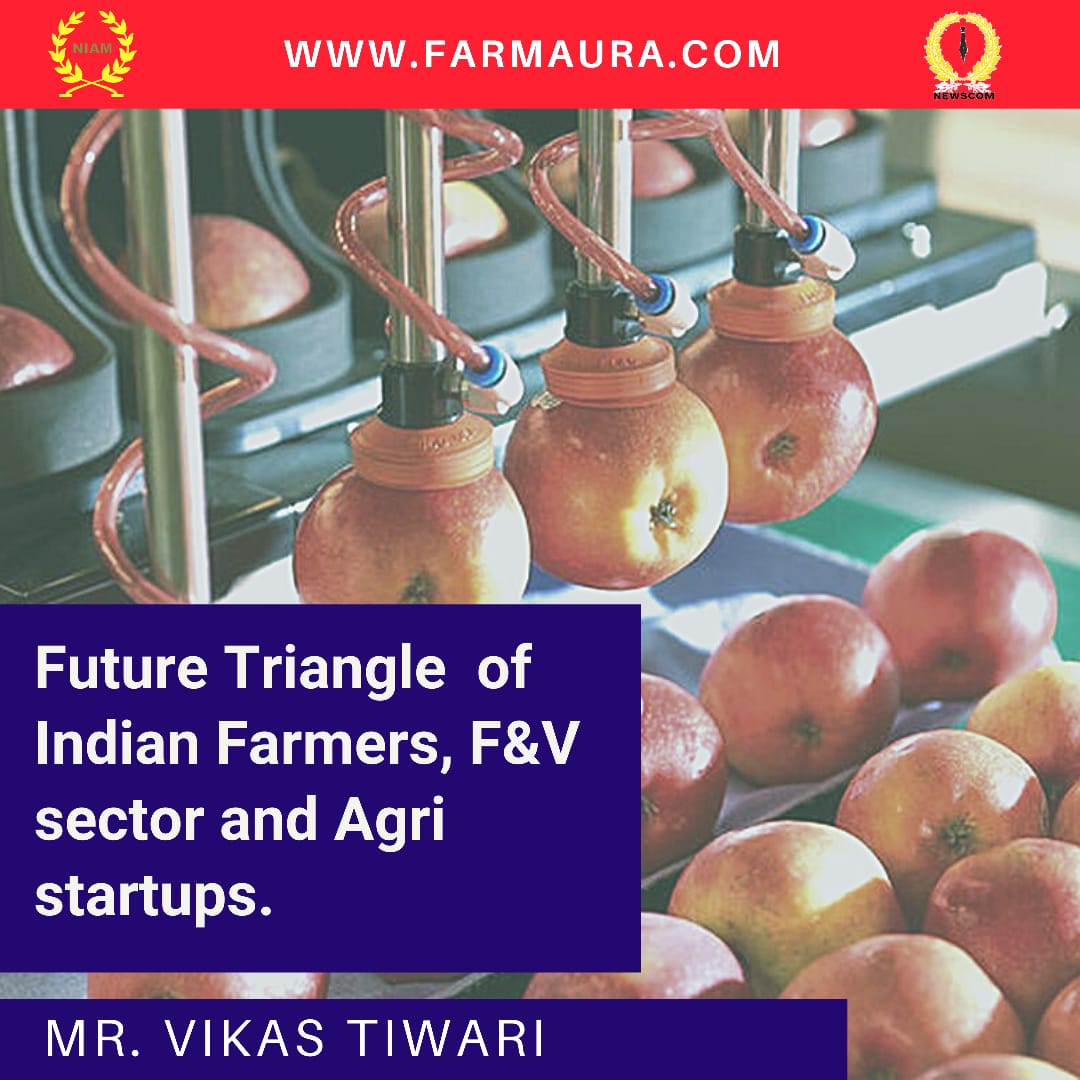
India’s organized retail market is facing a hike at a CAGR of 25 % per year. Considering the rising middle-class population, it is ranked 2nd in 2019 GRDI. This has ultimately impacted the market demand for Fruits and Vegetables (F&V) in the Horticulture supply chain. Hence, Agritech (Agricultural technology) and smart farming have taken on charge and created a new definition of business. This is not only providing power to Indian Farmers but also boosting the rural economy.
India being the largest producer of fresh vegetables globally accounts for about 15 % of the world’s total production. It also ranks first in the production of fruits like bananas (25.7 %), papayas (43.6 %), and mangoes (40.4 %).
From the farming inputs to last-mile distribution, these Agritech Start-ups are using new technologies to enhance the end-to-end Horticulture supply chain to provide farmers with multiple distribution channels. They are leveraging technology in market linkages such as retail F2B, F2C, B2B, and B2C marketplaces and digital agronomy startups for fruits and vegetable supply chain, online marketplace, selling fresh, grade-wise, and demand-wise fruits and vegetables in the respective markets. Not only the supply chain but they are also enabling traders/wholesalers to discover new suppliers/farmers, maintaining ledgers, crop advisory, and accessibility to a wide range of high-quality farm inputs to farmers, making payments, avail loans through their own NBFC, and access working capital through their applications.
The Agritech sector of Agri-business has received over $467 Mn funding from 2014 to 2020 combined. Players like Crofarm, Ninjacart, Waycool, Intello Labs, CropIn, VillageAgro, Vegrow, DeHaat, Bijak, and many more in India and abroad are growing their business well.
The Traditional F&V supply chain includes several middlemen sourcing the F&V produce from farmers to markets. Due to this, the farmers get a smaller margin than actual and also more the players in the distribution channel of F&V, higher is the deterioration of the material. Thus Agritech Start-ups remove this hindrance in the supply chain by direct contact with farmers and the following farm to fork style.
But with great opportunities come great challenges. Following are some key challenges and strategies that can be adopted in the F&V segment.
- Low Shelf Life & Lack of cold storage infrastructure – The following Decentralization by local markets. Several retail chains like Reliance, Ninjacart, Big bazaar More retail Ltd, etc are following this strategy of local market preference for the respective F&V category.
- Quality Uncertainty – Backward Integration. Examples include the supply of high standard vegetable seeds, Farm advice of the F&V production, financial and machinery advisory, etc. Ultimately controlling procurement and grading at the right time and right stage and following vertical integration in the channel.
- In-Store Wastages – Personnel training and Recycling Dumps. F&V sector to be given trained permanent manpower to handle the stock inside the stores.
- Price Fluctuations – Continuous benchmarking and monitoring the price situations per SKU will put the supplier on par with market conditions and create trust in the minds of the consumer.
- Seasonality- This can be improved by the point of purchase displays in the stores for season-specific products.
- Farmer attitude and concerns – This can be improved by proper relations, crop advisory and farm support.
Thus, the triangle of Indian Farmers, F&V Sector, and Agritech startups is the new future buzz. Huge expectations are related to F&V in Horticulture. Emerging colossal degrees of new Agritech companies in the nation have started working to make those expectations of Indian ranchers work out.




